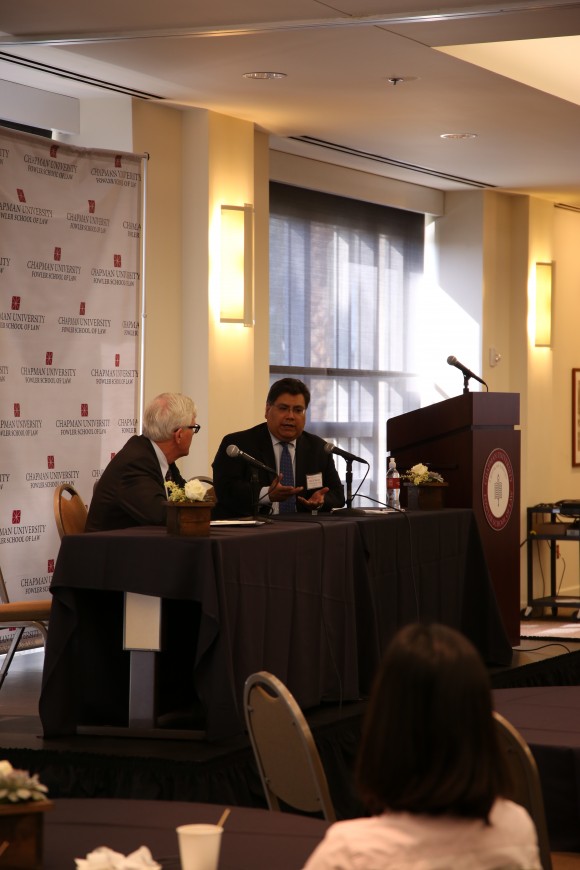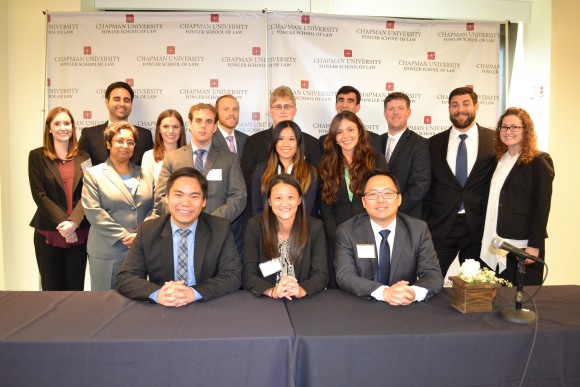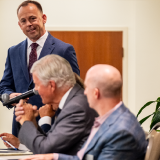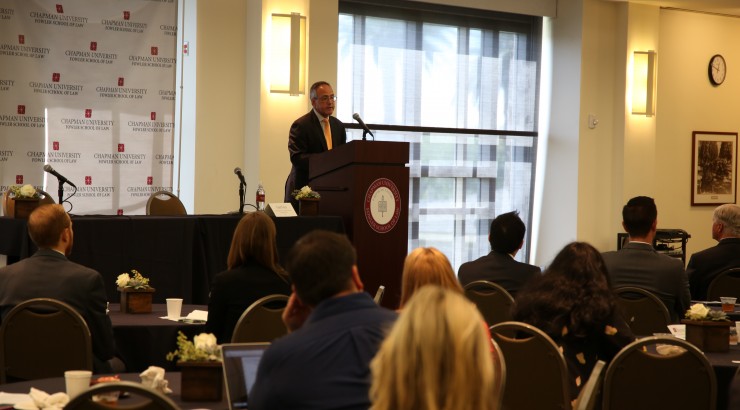
2015 Nexus Symposium Presents A Sustainable Future: The Advancement and Implementation of Renewable Energy
October 30, 2015
Chapman University Dale E. Fowler School of Law’s
Nexus Journal of Law and Policy
, celebrating its 20th year, hosted its annual symposium on Friday, October 23. The symposium, “
A Sustainable Future: The Advancement and Implementation of Renewable Energy
,” featured legal scholars, industry professionals and policy influencers. Over the course of a morning address, three panels and a keynote speech, attendees were presented with the benefits, drawbacks, realities and considerations relevant to achieving a future dependent on renewable energy.
Fowler School of Law Professor Hugh Hewitt started the day by celebrating the
Nexus Journal’s
20th anniversary, providing a brief history of the journal and its past symposium topics. He reiterated the foundational concept of the journal, “to prove that issues that are emerging can be of interest not just to the legal community, or to the media community, or to the political community, but to all three at the same time.” He connected the relevance of that mentality to this year’s symposium topic. Professor Hewitt concluded by introducing Dino Barajas, partner at Akin Gump Strauss Hauer & Feld LLP, who gave the morning address. Mr. Barajas introduced the audience to the world of renewable energy with a brief history of the development of the renewable energy industry in America and an overview of issues that the country faces in its quest for wider implementation of green technologies.
Mr. Barajas’ address was followed by the first panel of the day, “Renewable Realities,” which was moderated by Fowler School of Law’s Assistant Dean of Career Services, Melissa Berry. The panel included vigorous discussion about the future of energy. Ultimately, the main ideas distilled into a single question: With such great availability of natural gas and coal, what must be done to shift development away from those sources? The answer, according to some members of the panel, involves nationwide policy shifts to provide incentives for development of renewable energy, as well as greater concern and initiative on the part of voters and elected representatives. As one panelist pointed out, quoting Col. B.P. McCoy, “without genuine concern, this is all worthless.”
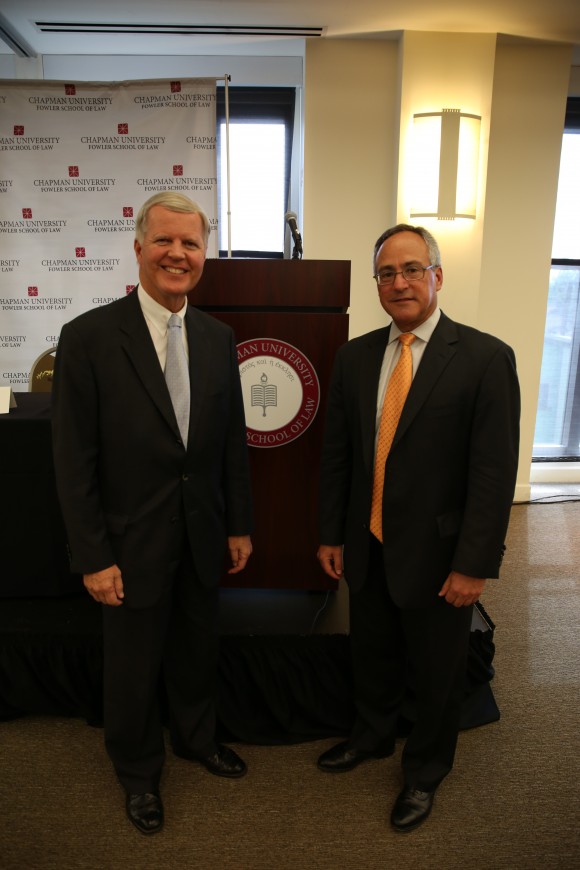
Dean Tom Campbell and keynote speaker Todd Foley, Chief Strategy Officer for the American Council on Renewable Energy
The first panel was followed by the keynote address, given by the Chief Strategy Officer for the American Council on Renewable Energy, Todd Foley. Mr. Foley’s presentation painted a positive picture for the future of renewable energy, with examples of how the renewable energy industry is growing, how prices are decreasing, and how powerful businesses and institutions are contributing to the spread of green technologies.
The day’s second panel, “Policy Perspectives,” was led by Fowler School of Law Professor Deepa Badrinarayana. This panel discussed the challenges present in influencing policy to make renewable energy more viable. Panelists commented on the politicized nature of the renewable energy industry, and topics included current versus ideal requirements imposed by the law, how renewable energy can best be regulated, and who bears the real costs of the use of renewable energy.
The third and final panel, moderated by Professor Kenneth Stahl, was entitled “Advancing New Technology and What the Future Holds.” This panel featured speakers on the front lines of emerging technologies and changing policies. These speakers provided a glimpse into the near future in terms of the technologies that will soon be benefitting society and the changes that will occur to help highlight those technologies and position the world for a sustainable future.
